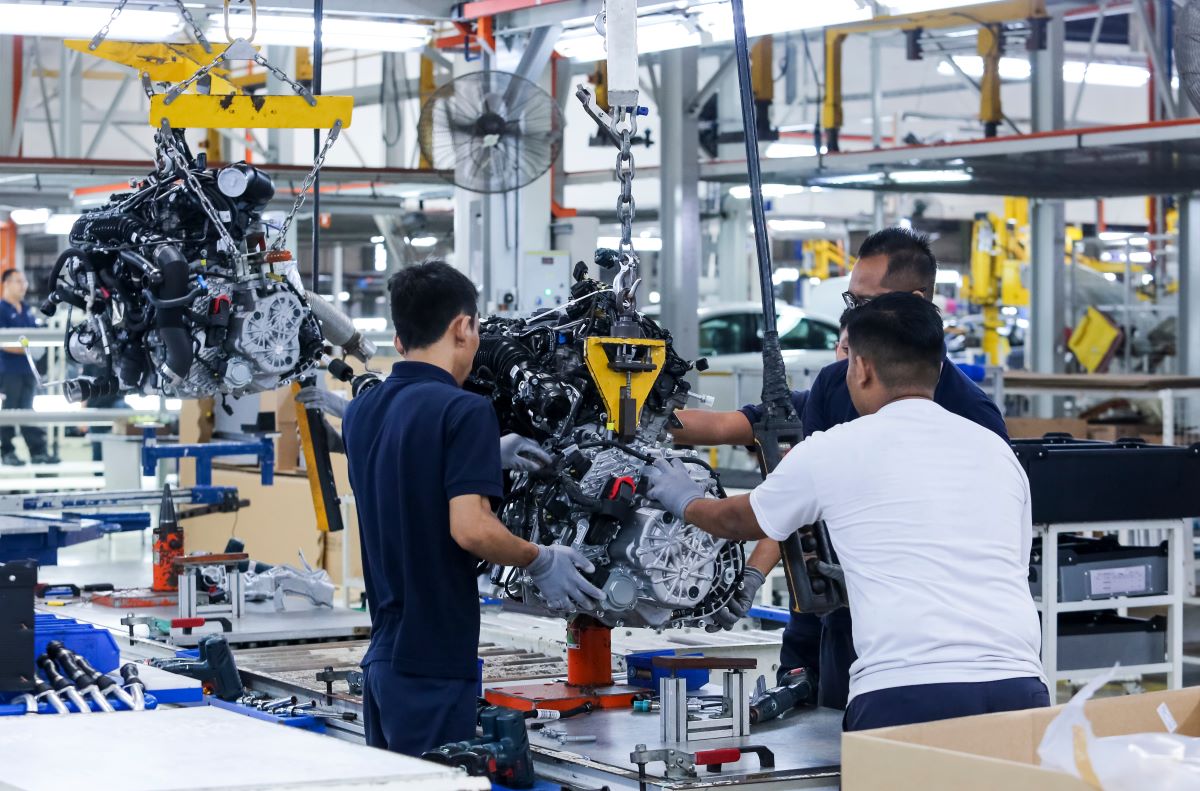The global economic slowdown and rising inflation have lowered demand for goods manufactured in Asia, but the ASEAN region seems to be coming out of the slump due to improving macroeconomic conditions. The ASEAN manufacturing output rose in February on the back of rising output and new orders.
The S&P Global ASEAN Manufacturing PMI stood at 51.5 in February, up from 51.0 in January. Among the member countries of ASEAN, only two saw their manufacturing output contract in February.
“The ASEAN manufacturing sector reported a strong improvement in operating conditions during February. The rate of expansion across the sector was the fastest in four months, as output grew at one of the fastest rates on record. Factory orders also rose at a quicker rate, while employment levels recovered and grew slightly for the first time in four months,” S&P Global said in a note.
The ASEAN region, or the major Southeast Asian economies, is seeing increased interest from manufacturers as part of the ‘China plus one’ strategy. However, the growth is not as linear as one would expect, with certain economies outperforming some of the more developed ones.
Who is leading ASEAN manufacturing growth?
As per the S&P Global report, Thailand saw expansion for a second straight month with the PMI rising to 54.8 in February, as operating conditions improved during the month. Electronics, vehicles and petrochemicals are the main manufacturing industries in the country.
The Philippines saw its second-best improvement in operating conditions, with the PMI rising to 52.7, easing slightly from January’s seven-month high but still on a strong note. The archipelago has manufacturing prowess in semiconductors, electronic components, refined petroleum products, computers, and processed food.
On the other hand, Indonesia and Vietnam both saw their PMI rise to 51.2 in February. Indonesia’s top manufacturing industries are food & beverages, chemicals, basic metals, textiles & apparel and automotive. Whereas, Vietnam is a major exporter of telecom equipment, computer parts, footwear and garments.
Singapore and Malaysia saw their manufacturing PMI contract to 49.7 and 48.4, respectively. Singapore’s manufacturing sector is focused on electronics and precision engineering, chemicals, and biomedical manufacturing. The primary pillars of Malaysia’s manufacturing sector are electrical and electronics, machinery and equipment and chemicals.
“After the headline PMI slipped to a 15-month low in December, the ASEAN manufacturing sector strengthened further mid-way through the first quarter of 2023,” as per S&P Global.
The financial agency says that while cost pressures eased, and supplier lead times improved during the month, international demand for ASEAN goods was weak. New business from overseas continued to contract in February.
“Finally, the outlook for output over the coming 12 months remained optimistic across ASEAN manufacturers in February. That said, the respective index weakened to an 18-month low and has now printed below the historical average for four successive months,” adds S&P Global.










 Australia
Australia China
China India
India Indonesia
Indonesia Japan
Japan Malaysia
Malaysia Philippines
Philippines Singapore
Singapore South Korea
South Korea Taiwan
Taiwan Thailand
Thailand Vietnam
Vietnam Germany
Germany Hong Kong
Hong Kong USA
USA Switzerland
Switzerland Singapore
Singapore
 United Kingdom
United Kingdom








